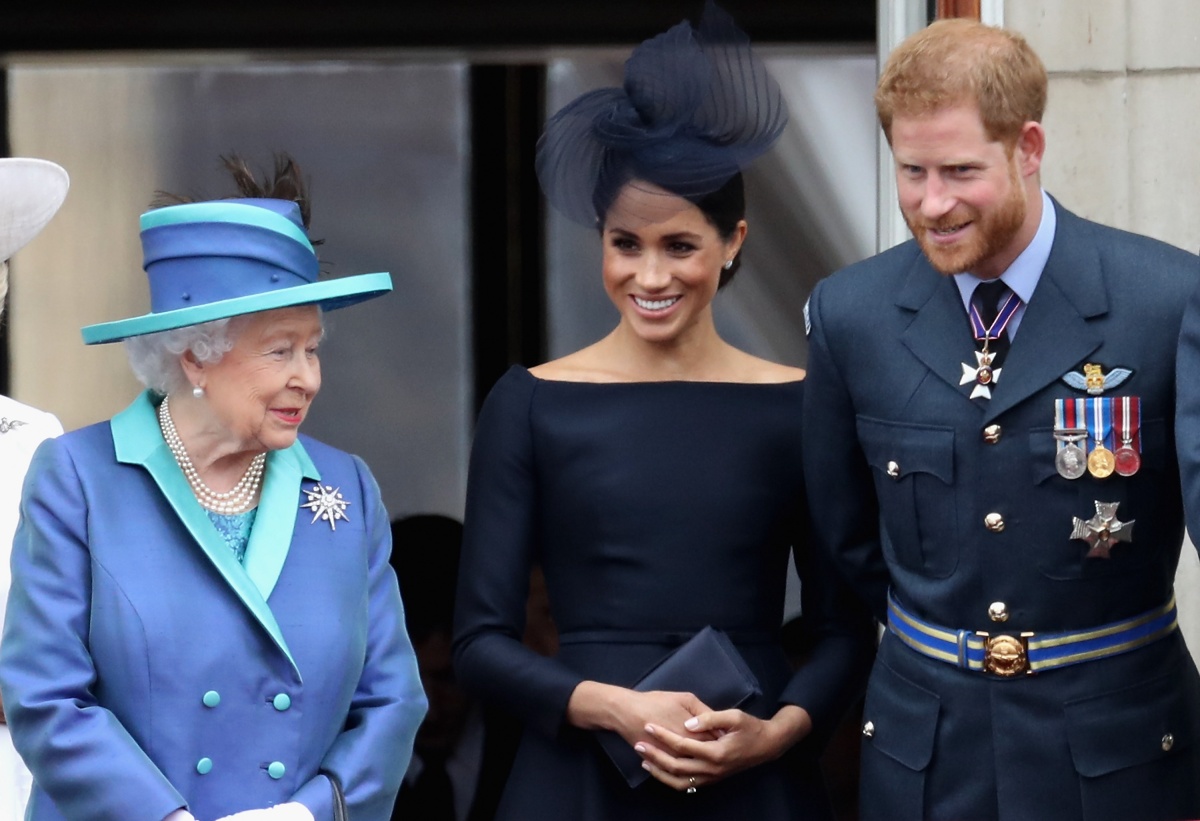Why Is No One Talking About the Anti-Imperial Content in ‘Harry & Meghan’?

Part Two of the Harry & Meghan docuseries has just dropped. I have only just finished processing the information from Part One. Amongst all the drama about the royals, what has been strange is the lack of discussion around the anti-imperialist language within the series.
While it is certainly not radical enough, the second and third episodes of Harry & Meghan take a bit of time to explain the racial dynamics of Black people within the U.K., along with exploring Meghan’s own experience with her racial identity. Many people have taken Meghan’s comments about not being seen as a “Black woman” as saying she had zero Black experience. On her podcast and in other places, she has talked explicitly about being mixed-race and those nuances that are different from being perceived as a Black woman from the start. Her agent talks about thinking she was tan at first. In this Black girl’s humble opinion, Meghan has never seemed racially ambiguous to me. Anyone who has seen Black folks with straightened hair can see the truth in her edges. But the fact that she isn’t someone who experiences colorism and featurism would certainly impact her experiences.
Two people who speak on the topic in the docuseries are David Olusoga, author of Black & British, and journalist Afua Hirsch who wrote Brit(ish). Both discuss the experiences of Black folks in the United Kingdom and how during Meghan and Harry’s dating relationship and engagement announcement, there was also the rise of alt-right racist groups in the U.K. that would lead to Brexit and a rise in nativist language. For a long time, the U.K. has been able to present the idea that they don’t have the same racial issues as the U.S., especially since they didn’t have slavery on their land. But, as explored in episode three, their deep South was the Caribbean, where they made massive fortunes on slavery and imperialism that was started by Queen Elizabeth I and lasted until George III. Even then, that came from paying out slave owners for the loss of their enslaved people, and something British taxpayers were paying for up until fairly recently.
Yet, despite all the effort put into exploring these aspects and how they tie to fundamental issues within the British Royal Family, while attached to one of the former senior members, all folks are talking about is potential “William shade.” We saw William and Kate fumble a massive press tour in the Caribbean. There is massive unrest in the Commonwealth over its future relationship with the Crown, but that has been ignored. It speaks to the fact that even when something very heavily watched is addressing systematic racism, folks will find ways to ignore it.
(image: Chris Jackson/Getty Images)
Have a tip we should know? [email protected]
